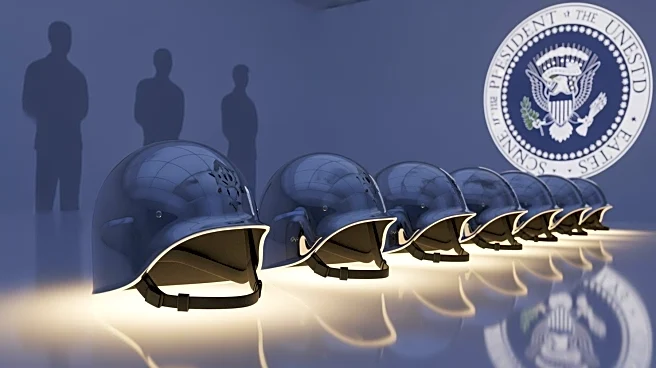What's Happening?
A group of Ohio National Guard members has expressed concern over President Trump's deployment orders in an encrypted group chat. The administration has sent troops to several Democratic-led cities, citing the need to address violent crime and protect
federal facilities. The Ohio guard members are questioning their role in these deployments, which they feel are outside the scope of normal operations. The deployments have included cities like Los Angeles, Washington D.C., Chicago, and others, with some remaining in legal limbo. The guard members, identified only by their initials, have shared their anxiety and doubts about these orders, fearing retribution for their opinions.
Why It's Important?
The questioning of deployments by National Guard members highlights potential dissent within the military ranks regarding the use of troops for domestic operations. This situation could impact military morale and the perception of military neutrality in political matters. The deployment of troops in U.S. cities raises concerns about the militarization of domestic spaces and the potential for increased tension between federal authorities and local communities. The involvement of organizations like About Face, which supports service members questioning their deployments, indicates a growing movement within the military to address ethical concerns.
What's Next?
The ongoing discussions among National Guard members may lead to increased scrutiny of deployment orders and their alignment with military ethics. The legal challenges surrounding some deployments could result in changes to how and where troops are deployed domestically. The administration's approach to using the National Guard for domestic operations may face further opposition from military personnel and civil society groups, potentially influencing future policy decisions.
Beyond the Headlines
The ethical implications of using military forces for domestic law enforcement are significant, as they challenge traditional boundaries between military and civilian roles. The situation may prompt broader discussions about the role of the military in domestic affairs and the potential consequences for civil liberties. The psychological impact on service members involved in these deployments could lead to increased demand for mental health support within the military.
















